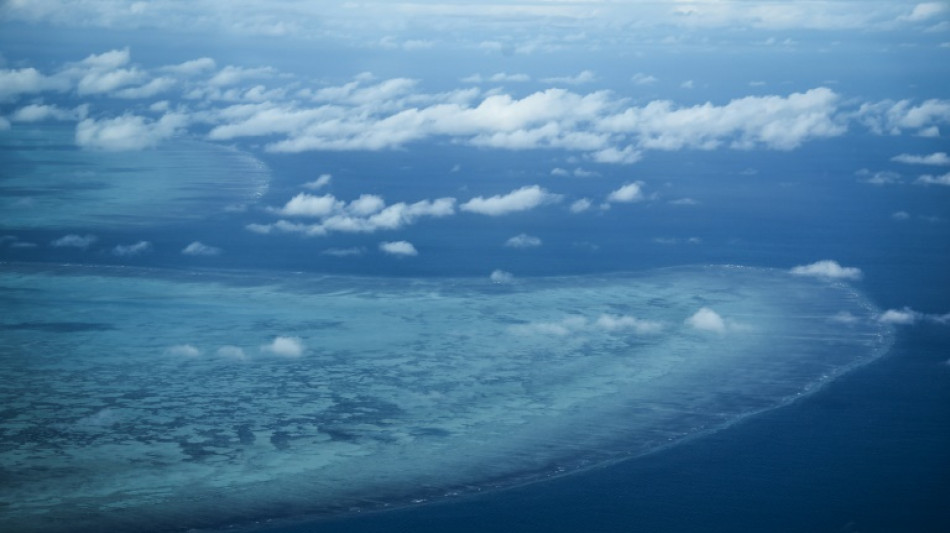
-
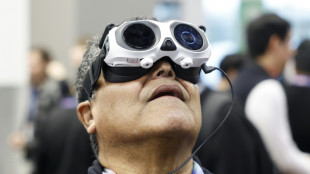 AI gobbling up memory chips essential to gadget makers
AI gobbling up memory chips essential to gadget makers
-
'One Battle After Another' leads the charge for Golden Globes

-
 Kyrgios to play doubles only at Australian Open
Kyrgios to play doubles only at Australian Open
-
Firefighters warn of 'hectic' Australian bushfires

-
 International Space Station crew to return early after astronaut medical issue
International Space Station crew to return early after astronaut medical issue
-
Arsenal in 'strong position' despite missed opportunity for Arteta

-
 US House revolt advances Obamacare subsidy extension
US House revolt advances Obamacare subsidy extension
-
Swiss mining giant Glencore in merger talks with Rio Tinto

-
 US snowboard star Kim dislocates shoulder ahead of Olympic three-peat bid
US snowboard star Kim dislocates shoulder ahead of Olympic three-peat bid
-
Brazil's Lula vetoes bill reducing Bolsonaro's sentence

-
 AC Milan scrape a point with Genoa after late penalty howler
AC Milan scrape a point with Genoa after late penalty howler
-
Arsenal miss chance to stretch lead in Liverpool stalemate

-
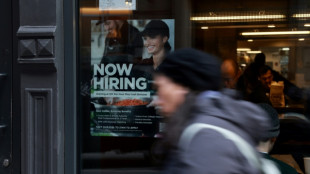 Stocks mixed as traders await US jobs data, oil rebounds
Stocks mixed as traders await US jobs data, oil rebounds
-
After Minneapolis shooting, AI fabrications of victim and shooter

-
 Trump says no pardon for Sean 'Diddy' Combs
Trump says no pardon for Sean 'Diddy' Combs
-
Venezuela begins 'large' prisoner release amid US pressure

-
 Real Madrid beat Atletico to set up Clasico Spanish Super Cup final
Real Madrid beat Atletico to set up Clasico Spanish Super Cup final
-
Heavy wind, rain, snow batters Europe

-
 PSG beat Marseille on penalties to win French Champions Trophy
PSG beat Marseille on penalties to win French Champions Trophy
-
From sci-fi to sidewalk: exoskeletons go mainstream

-
 Rare genius dogs learn vocabulary by eavesdropping: study
Rare genius dogs learn vocabulary by eavesdropping: study
-
EU orders Musk's Grok AI to keep data after nudes outcry

-
 Venezuela announces release of 'large number' of prisoners
Venezuela announces release of 'large number' of prisoners
-
Rare gorilla twins born in conflict-hit DR Congo nature park
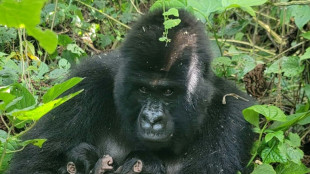
-
 Dolphins fire head coach McDaniel after four seasons
Dolphins fire head coach McDaniel after four seasons
-
Three ships head to US with Venezuela oil as capacity concerns grow
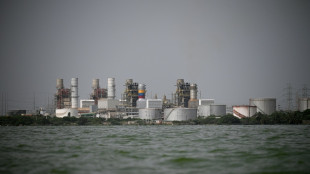
-
 Trump says US could run Venezuela and its oil for years
Trump says US could run Venezuela and its oil for years
-
Heavy wind, rain, snow to batter Europe
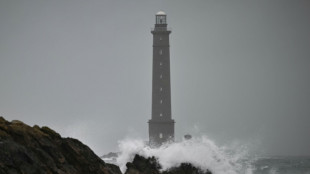
-
 Morocco coach Regragui aims to shift pressure to Cameroon before AFCON clash
Morocco coach Regragui aims to shift pressure to Cameroon before AFCON clash
-
HRW warns right to protest 'under attack' in UK

-
 French farmers rage against EU-Mercosur trade deal
French farmers rage against EU-Mercosur trade deal
-
Humanoid robots go for knockout in high-tech Vegas fight night

-
 Brazil's Lula vetoes law reducing Bolsonaro's sentence
Brazil's Lula vetoes law reducing Bolsonaro's sentence
-
Macron accuses US of 'turning away' from allies, breaking rules

-
 Joshua pays tribute to close friends killed in crash
Joshua pays tribute to close friends killed in crash
-
Protesters, US law enforcement clash after immigration officer kills woman

-
 French ex-spy chief cops suspended jail term for 15 mn euro shakedown
French ex-spy chief cops suspended jail term for 15 mn euro shakedown
-
Syria bombs Kurdish areas in city of Aleppo

-
 Confusion reigns over Venezuela's oil industry as US looms
Confusion reigns over Venezuela's oil industry as US looms
-
Stocks retrench as traders eye geopolitics, US jobs data
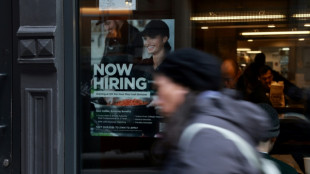
-
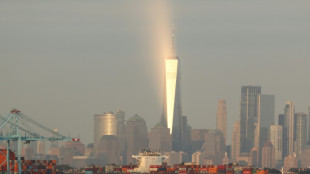 US trade gap shrinks to smallest since 2009 as imports fall
US trade gap shrinks to smallest since 2009 as imports fall
-
Russia releases French researcher in prisoner exchange

-
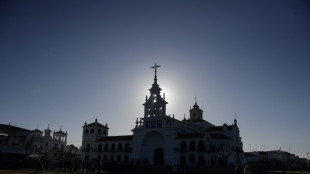 Spain signs agreement with Church to compensate abuse victims
Spain signs agreement with Church to compensate abuse victims
-
Macron accuses US of 'breaking free from international rules'

-
 US could run Venezuela, tap its oil for years, Trump says
US could run Venezuela, tap its oil for years, Trump says
-
England to stick with Stokes and McCullum despite Ashes flop

-
 Nobel laureate Bialiatski tells AFP 'important' to keep pressure on Belarus
Nobel laureate Bialiatski tells AFP 'important' to keep pressure on Belarus
-
Russia slams Western peacekeeping plan for Ukraine

-
 Bordeaux's Du Preez wary of Northampton's Champions Cup revenge mission
Bordeaux's Du Preez wary of Northampton's Champions Cup revenge mission
-
Romero apologises for Spurs slump as crisis deepens


Great Barrier Reef ocean temperatures hit 400-year record: study
For the past decade, water temperatures along Australia's famed Great Barrier Reef have been the warmest in 400 years, a major study said on Thursday.
Ocean temperatures around the spectacular coral system have increased yearly since 1960 but were particularly hotter during recent mass coral bleaching events, according to a study in the science journal Nature.
The warmer waters are most likely down to human-induced climate change, the report said.
Co-author Helen McGregor said she was "extremely concerned" about the reef, describing the temperature increases as "unprecedented".
"These are corals that have lived for 400 years and this is the warmest temperatures they're experiencing. These are the Redwood trees of the reef," she told AFP.
Often dubbed the world's largest living structure, the Great Barrier Reef is a 2,300-kilometre (1,400-mile) long expanse, home to a stunning array of biodiversity that includes more than 600 types of coral and 1,625 fish species.
But repeated mass bleaching events -- when extreme heat saps the coral of nutrients and colour -- threaten the reef's fragile ecosystem.
Coral bleaching occurs when water temperatures rise more than one degree Celsius (1.8 degrees Fahrenheit).
- 'Changes happening too quickly' -
The Australian researchers examined sea surface temperatures in the Coral Sea –- a 2,000-kilometre (1,200-mile) stretch of ocean that extends down the northeast coast and includes the Great Barrier Reef.
Scientists used coral skeleton samples to reconstruct sea surface temperatures from 1618 to 1995, as well as more recent data.
They found temperatures before 1900 had been relatively stable but the sea had warmed 0.12C (0.2F) on average since 1960 until the present.
Those temperatures were even higher during the past five mass bleaching events in 2016, 2017, 2020, 2022 and 2024, the report found.
McGregor said that although corals could recover, increasing high temperatures and repeated bleaching events were straining that ability.
"These changes -- from what we're seeing so far -- appear to be happening too rapidly for the corals to adapt to so it really threatens the reef as we know it," said McGregor, a climate researcher at the University of Wollongong.
This year's bleaching event has left 81 percent of the reef with extreme or high levels of damage -- one of the most severe and widespread on record, the latest government data shows.
It will take scientists a few more months to determine how much of the reef is beyond recovery.
- 'Existentially threatened' -
Richard Leck, World Wide Fund Australia's head of oceans, said the future of the reef was "increasingly vulnerable".
"At the moment, we can see the reef is resilient. It's bounced back from previous coral bleaching events but at some point that elastic band will snap," he told AFP.
"Coral reefs, as an ecosystem, are the first ecosystem on the planet to be existentially threatened by climate change."
"I think we have to be hopeful that the world is not going to stand by and let that happen. But it is a fraction of a second to midnight," he said.
Governments around the globe are ramping up efforts to help curb greenhouse gases or invest in reef adaptation and mitigation efforts.
Australia has invested about Aus$5 billion ($3.2 billion) in improving water quality, reducing the effects of climate change, and protecting threatened species.
But Australia, one of the world's largest gas and coal exporters, has only recently set targets to become carbon neutral.
L.Miller--AMWN
